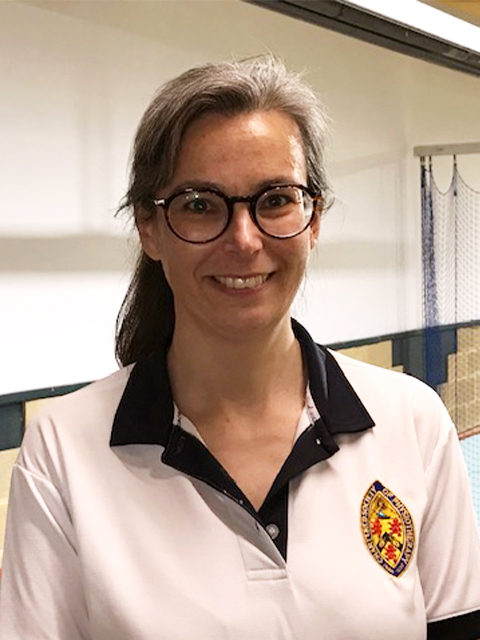 | Heather MacKinnon has been with the Fit4Surgery programme since it’s NHS funded pilot in 2019. Fit4Surgery is a prehabilitation programme for those with a cancer diagnosis. Through the programme, patients are supported to improve their holistic health through supported exercise, nutritional status and emotional health. Heather initially trained as a physiotherapist and a clinical academic, completing a PhD and developing physical activity prehabilitation interventions for those with kidney disease. Outside of work, Heather loves doing ParkRun (5k runs) as a family with her husband and two children. |
|---|
Heather’s favourite part of her role is working with patients.
“As Fit4Surgery supports people throughout their chemotherapy or radiotherapy, it’s a long-term relationship and we get to know patients really well. It’s lovely seeing them improving, getting fitter, increasing their confidence and getting them feeling a lot more prepared for surgery. The feedback we receive is always just lovely and positive.”
Heather’s utmost care for patients is reflected in every step of Fit4Surgery.
“We know that no two people are the same. For us it’s very much about just being friendly, approachable and patient-centred and making the exercise fit in with their lives.
Before patients start Fit4Surgery, we have holistic assessments which are a good long chat getting to know you and assess which behaviour interventions and exercises you’ll best engage with. It’s important to us to make sure that our exercise and support are personalised and meets you where you’re at. Some start really small, so don’t be afraid to be honest about what you’re comfortable with.”
What to expect if you’re starting Fit4Surgery
What exercise will you do?
Patients exercise once a week at the Fit4Surgery session, and twice a week at home. Exercise prescriptions are driven by a cardiopulmonary exercise test. Each prescription is individually bespoke and tailored to functional level and exercise background. Typical exercises include using treadmills, bikes, basic upper limb and lower limb strength exercises and stretching.
“Being told you’ve got cancer is a very teachable moment. Some people rush out to buy a bike and are walking everyday, but for others it’s about fine tuning their routines and scheduling rest days.
Lots of our patients have never been in a gym before. If patients don’t initially want come in, we’ll start them off home exercising for a couple of weeks to build up confidence. Other people prefer to come in and do it with us to build that confidence. We make sure to meet each individual with their needs.
We design our exercises to be done at home with no kit so there’s no barriers or inequalities creating in accelerating your health. Whether you’re in a flat with no space and no kit, or you have a home gym, we’ll develop and deliver an effective prehabilitation routine for you.”
How big are class sizes?
Class sizes are face-to-face and numbers are kept small, with around four to six people.
“Small class sizes allow us to create a personalised environment and make participants feel safe. It also creates a strong sense of peer support within the group, which is really valuable in keeping each other going. We’ve just started monthly meetings for a coffee session to further promote that peer support.”
How old are most Fit4Surgery patients?
We see patients from their thirties to their eighties, with most falling within the 55-75 age bracket.
Why Heather loves the NCSEM
“The NCSEM is a really nice building, it has some really nice kit and it’s well set up for the patients. One of the best things for us is that we’re developing more and more relationships with the rest of the building. One member of the Fit4Surgery team has taught on a Loughborough University master’s programme for the last few years, and we’re now delivering a prehabilitation session as part of that. We’re also collaborating on research with the Centre for Lifestyle Medicine and Behaviour (CLiMB) that’s based here too. It’s great to embrace teaching elements and research elements as part of this new service. It allows us to grow together and create even better patient care.”
The future of Fit4Surgery
“We started Fit4Surgery for people who have six weeks in their pathway before surgery for specific tumour sites like the upper GI, the bladder and gynecology. We’ve recently received some short term funding to start offering a short pathway service for those with two to four weeks before surgery. Research has shown that there is effectiveness from two weeks, so we’re looking forward to helping even more patients.
We aim to double our services in the next 12 months. The University Hospital of Leicester treats about 7500 people with cancer per year. Around 1500 of these people would benefit from gaining better cardiovascular fitness in our prehabilitation care. We’re really proud with how the service has grown and we look forward to progressing it further so that we can provide the optimal service to all patients who need it.”